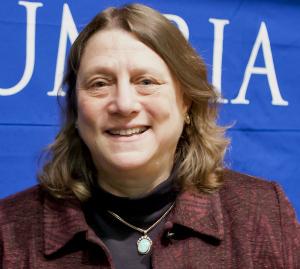Ginsburg On Internet Ad Practices And Infringement
Ginsburg On Internet Ad Practices And Infringement
GINSBURG, TRADEMARK EXPERT, ANALYZES INTERNET ADVERTISING PRACTICES FOR POSSIBLE TRADEMARK INFRINGEMENT
Press contact:
James O’Neill 212-854-1584 Cell: 646-596-2935
July 20, 2008 (NEW YORK) – Columbia Law School Professor Jane Ginsburg, an expert on copyright and trademark law, recently discussed the many techniques used by Internet advertisers to direct potential customers to their wares and whether some of these gambits enter the realm of trademark infringement.
Ginsburg made her presentation at the annual meeting of the European Community Trademark Association, held June 19 and 20 in Killarney, Ireland.
Ginsburg teamed up with Professor Alain Strowel of the Universitaires Saint Louis of Brussels. They discussed “Internet in the Landscape: Diverting Searches, Parking Domain Names, and Other Trademark Problems That Pop Up on the Internet.”
Ginsburg demonstrated and analyzed several Internet techniques, such as “typosquatting,” “domain name parking,” “metatagging,” and pop-up advertising, as well as AdWords, all of which sometimes appropriate trademark brand values on the Internet.
“Many new advertising techniques lead potential customers to the advertiser’s Web site via other commercial actors’ – often famous – trademarks,” Ginsburg said. For instance, if an Internet user types “Louis Vuitton” into a search query, the search results could yield a “sponsored link” for “Handbagsforless.com,” a site that may actually be selling competing accessories, or genuine but used Vuitton goods, or even “replica” items.
Ginsburg noted that European and U.S. courts have grappled with the question of whether such practices take unfair advantage of the distinctive character of the trademarked items.
United States courts have “so far failed to resolve the ‘trademark use’ quandary,” Ginsburg said, “with an approximately equal number of lower courts holding that AdWords do make infringing use as those that reject the characterization of the advertiser’s and search engine’s activities as ‘use.’”
Last May, the French supreme court referred to the European Court of Justice the question whether Google’s sale of trademarks as AdWords violated the EU Trademarks Directive and Regulation.
Ginsburg, Columbia Law School’s Morton L. Janklow Professor of Literary and Artistic Property Law, is director of the Law School’s Kernochan Center for Law, Media and the Arts. Last fall she helped launch KeepYourCopyrights.org, to help artists and writers retain control of their copyrights and manage those rights throughout their careers.
Columbia Law School, founded in 1858, stands at the forefront of legal education and of the law in a global society. Columbia Law School joins traditional strengths in international and comparative law, constitutional law, administrative law, business law and human rights law with pioneering work in the areas of intellectual property, digital technology, sexuality and gender, and criminal law.
The European Communities Trademark Association, created in 1980, is an association of trademark advisors, trade mark attorneys, lawyers practicing in industry and others from the Member States of the European Community in the field of trade marks, designs and related intellectual property issues. There are about 1,400 members from 85 countries. ECTA organizes annual conferences, publishes law books, gazettes and flash letters.
